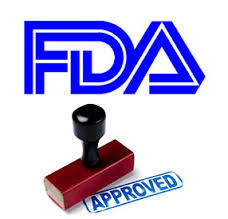- Home
- Editorial
- News
- Practice Guidelines
- Anesthesiology Guidelines
- Cancer Guidelines
- Cardiac Sciences Guidelines
- Critical Care Guidelines
- Dentistry Guidelines
- Dermatology Guidelines
- Diabetes and Endo Guidelines
- Diagnostics Guidelines
- ENT Guidelines
- Featured Practice Guidelines
- Gastroenterology Guidelines
- Geriatrics Guidelines
- Medicine Guidelines
- Nephrology Guidelines
- Neurosciences Guidelines
- Obs and Gynae Guidelines
- Ophthalmology Guidelines
- Orthopaedics Guidelines
- Paediatrics Guidelines
- Psychiatry Guidelines
- Pulmonology Guidelines
- Radiology Guidelines
- Surgery Guidelines
- Urology Guidelines
FDA approves new treatment for hepatitis C virus and compensated cirrhosis

USA: Mavyret (glecaprevir and pibrentasvir) tablets have received FDA's approval for an eight-week duration for the treatment of adults and children with all genotypes of hepatitis C and compensated cirrhosis.
The drug shortens duration of treatment to eight weeks and is meant for treatment of adults and children ages 12 years and older or weighing at least 99 pounds who have chronic hepatitis C virus (HCV) genotype 1, 2, 3, 4, 5 or 6 infection and compensated cirrhosis and have not been previously treated for HCV (treatment-naïve). The approval was granted to the pharmaceutical company AbbVie Inc.
“This approval provides a treatment duration of eight weeks for both pediatric and adult patients with compensated cirrhosis regardless of HCV genotype; meaning that an eight-week treatment regimen is available for any treatment-naïve HCV patient, regardless of cirrhosis status or genotype,” said Jeffrey Murray, deputy director of the Division of Antiviral Products in the FDA’s Center for Drug Evaluation and Research said in a press release.
“Mavyret is a combination of direct-acting antiviral drugs that reduce the amount of HCV in the body to undetectable levels by preventing the virus from multiplying, and in most cases, curing HCV infection.”
The approval makes Mavyret, the first eight-week treatment approved for all treatment-naïve adult and certain pediatric patients with HCV genotypes 1-6 both without cirrhosis and with compensated cirrhosis. Standard treatment length for patients with compensated cirrhosis was previously 12 weeks or more.
HCV is a viral disease that causes inflammation of the liver that can lead to diminished liver function or liver failure.
The efficacy and safety of Mavyret were established in clinical trials, which cumulatively evaluated more than 2,500 people with HCV genotype 1, 2, 3, 4, 5 or 6 infections who received Mavyret for eight, 12 or 16 weeks duration. The trials included patients with HIV-co-infection, kidney or liver transplant recipients and patients with advanced kidney disease, including those requiring hemodialysis.
The efficacy of HCV treatment regimens is measured by the proportion of people in clinical trials achieving virologic cure. Virologic cure is the lack of detectable HCV in the blood at certain time points after completion of HCV therapy, known as a sustained virologic response (SVR). SVR at 12 weeks post-treatment (SVR 12) is the standard measure of virologic cure. SVR 12 rates for Mavyret have ranged from 91-100 per cent across clinical trials.
The most common adverse reactions in patients taking Mavyret are headache and fatigue. Mavyret is contraindicated in patients with moderate or severe liver impairment (Child-Pugh B or C) or in those with any history of liver decompensation. It is also contraindicated in patients taking the drugs atazanavir and rifampin.

Disclaimer: This site is primarily intended for healthcare professionals. Any content/information on this website does not replace the advice of medical and/or health professionals and should not be construed as medical/diagnostic advice/endorsement or prescription. Use of this site is subject to our terms of use, privacy policy, advertisement policy. © 2020 Minerva Medical Treatment Pvt Ltd